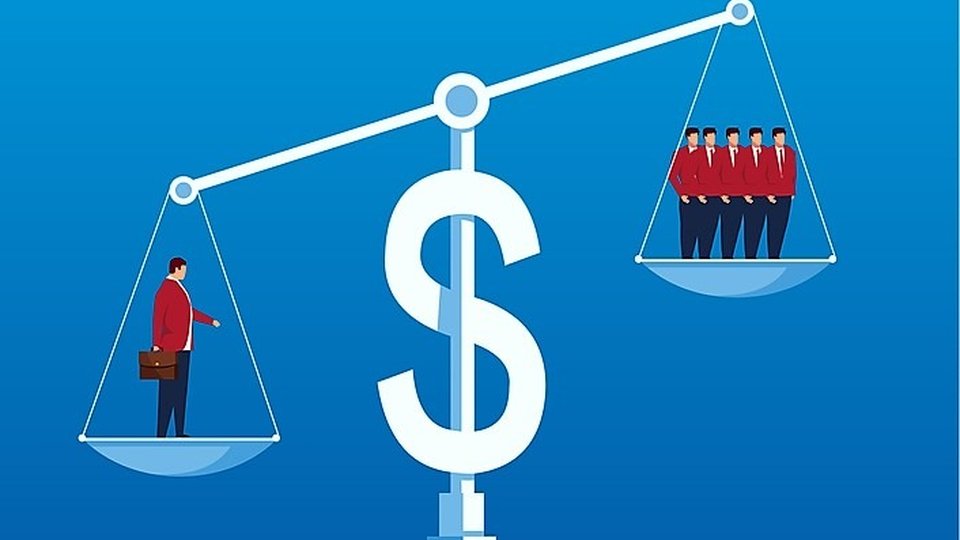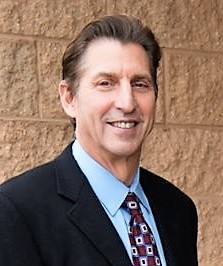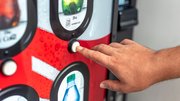Vending
NAMA to Congress: Vending operators also need COVID relief
Under both the existing and proposed Restaurant Revitalization Fund laws, convenience services operators are eligible for grants based on how much business they do in lines of foodservice spelled out in the laws. The laws do not, however, allow operators to qualify for grants for vending losses,

June 16, 2021 by Elliot Maras — Editor, Kiosk Marketplace & Vending Times
U.S. foodservice businesses will be given a second shot at government funding under the Restaurant Revitalization Fund, a relief program announced in late April to help companies recover from COVID-19 losses.
Last week, lawmakers in both houses of Congress introduced the Restaurant Revitalization Fund Replenishment Act of 2021 to provide $60 billion in additional funding through the Small Business Administration.
Lawmakers want to provide additional funds after the initial $28.5 billion in funding announced in April fell short of operator requests, as more than 362,000 applications for a total of $75 billion in funding were received in the three weeks the RRF application portal was open, according to the National Restaurant Association, citing numbers provided by the SBA.
Under both the existing and proposed law, convenience services operators are eligible for grants based on how much business they do in lines of foodservice spelled out in the law. The law does not, however, allow operators to qualify for grants for vending losses, something that the National Automatic Merchandising Association has been lobbying for since the restaurant revitalization fund was first proposed.
Lobbying effort continues
NAMA continues to lobby for relief from vending losses as the bill heads for a vote.
 |
| Mike Goscinski |
"While we appreciate the relief extension for businesses that were unable to access grants before funds were exhausted, vending operators have been restricted from eligibility, despite the critical role they play in getting consumers access to food and beverages," Mike Goscinski, NAMA director of federal and state affairs, said in a prepared statement.
"We have been trying to have them not only refund the program, but amend the language in the program to include 'vending machine operators' in the list of eligible entities," Goscinski said.
For this to happen, the bill will need an amendment or the original authors — Representatives Earl Blumenauer, D-Oregon and Brian Fitzpatrick, R-Pennsylavnai, along with Senators Kyrsten Sinema, D-Arizona and Roger Wicker, R-Mississippi — will need to edit and re-introduce it.
NAMA encourages vending operators to reach out to their lawmakers to amen the law. A form letter is available on the NAMA website.
Who's eligible?
The eligible lines of business in the current and proposed law include: restaurants; food stands; food trucks; food carts; caterers; bars saloons; lounges; brewpubs; snack and nonalcoholic beverage bars; bakeries; tasting rooms; taprooms; breweries; wineries; inns; and licensed facilities or premises of a beverage alcohol producer where the public may taste, sample or purchase products.
"Operators who have foodservice operations such as catering, cafeterias, snack bars, etc. are eligible to apply for the grants for those business lines," Goscinski said. "We believe that micro markets can fall under the broad definition of snack bars and food stands.
"Operators will need to divide out based on those specific business categories," he said. For example, "Only the loss from the catering company, not the entire (vending) company are eligible for the grant applications."
NAMA lobbied lawmakers to include vending machine operators before Congress passed the initial bill.
"At the time they (Congress) said that they were not going to do that because they wanted to give the Small Business Administration the flexibility to allocate eligibility of the program," Goscinski, said.
Once the original bill passed, NAMA approached the SBA to include vending operators. "They (the SBA) told us they were bound by statute to not include them," he said.
SBA states its case
When announcing the fund in late April, SBA Administrator Isabella Casillas Guzman said the agency focused on the marketplace realities of food and beverage businesses "to ensure our smaller and underserved businesses, which have suffered the most, can access this critical relief, recover and grow more resilient."
The SBA is currently processing the existing applications, giving priority to female and minority owned businesses, Goscinski said. Nearly 38,000 applicants have already been approved for more than $6 billion, according to the agency in early June.
Goscinski said he is not aware of any NAMA members having been either approved or disapproved for grants.
"We have heard from folks (NAMA members) that are in the process regarding micro market line, catering line, etc.," he said.
Vending operators dissatisfied
Some members have expressed "general disappointment" in the law, Goscinski said.
"It's just a general disappointment that an industry that was impacted so greatly wasn't included," he said, adding that, "We (NAMA) share that disappointment."
A random survey of vending operators by Vending Times found that very few are even aware of the Restaurant Revitalization Fund. Those who are said they assumed, based on its name, that it did not apply to them and therefore did not explore it.
 |
| Eric Cardonick |
When they learned more about the program, several vending operators interviewed said the law is unfair as written.
"It seems unfair," said Eric Cardonick, owner of Advanced Services, Bensalem, Pennsylvania, and a board member of the Tri-State Automatic Merchandising Council. "We have dated product and we have food, so I don't know what the difference is if it's in a cart or in an open micro market or in a vending machine. It's still food."
Cardonick, who got an SBA Paycheck Protection Program loan and has recovered about 66% of his pre-pandemic sales, was one of several operators who said the product loss caused by the pandemic has been significant; he was unable to remove product in locations that closed without warning.
"We have other people in the same situation as I am who could use some of that help too," he said. "We just threw so much food away. It's just a lot of money that we have to make up."
Some operators said they were aware of the law but felt their pandemic losses were not significant enough to qualify for relief.
Bruce King, owner of Five Star Services, Johnson City, New York, a one-person operation and treasurer of the New York State Automatic Vending Association, said he is aware of the law and agreed that it is not fair to many small vending operators. King, however, said he has recovered about 80% of pre-pandemic sales.
Congress did not take public comments on the law since it was not the result of a regulatory rule making process.
Vending operators are encouraged to contact their lawmakers using a form letter available at the action center on the NAMA website, www.namanow.org.
For an update on how the coronavirus pandemic has affected convenience services operators, click here.
About Elliot Maras
Elliot Maras is the editor of Kiosk Marketplace and Vending Times. He brings three decades covering unattended retail and commercial foodservice.
 ChatGPT
ChatGPT Grok
Grok Perplexity
Perplexity Claude
Claude






